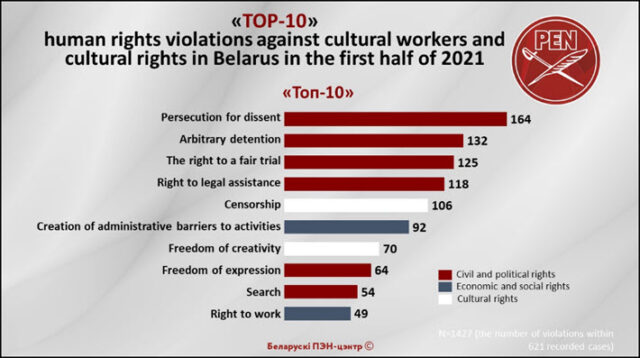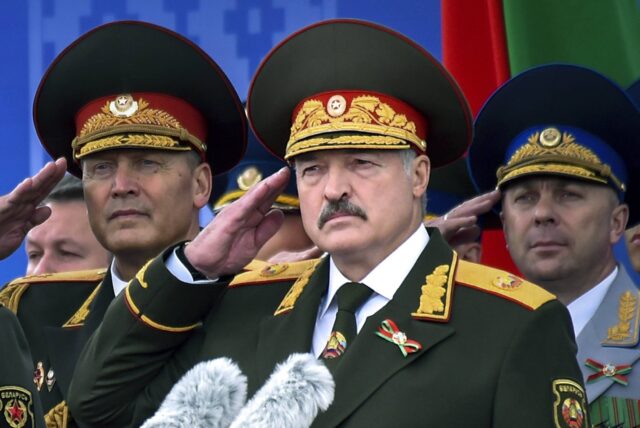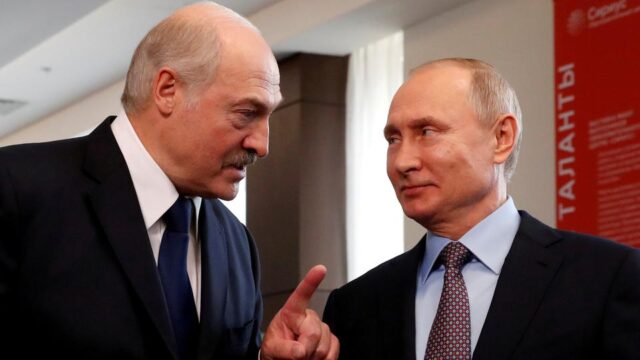Trigger Warning – PG spent way too long researching and preparing this post and is posting it too late at night.
At this point, he thinks there may some interesting observations, but isn’t sure
From Publishing Perspectives:
Disturbing news from PEN America, which has issued a notice to the media this afternoon (July 22) saying that the Belarusian justice ministry has sent a letter to PEN Belarus, informing the organization that it’s to be closed.
The news follows government raids on offices of cultural and rights organizations and of media outlets, as described in our article from Friday (July 16).
. . . .
Early this week, Belarusian opposition leader Sviatlana Tsikhanouskaya was in Washington for meetings with the Joe Biden administration’s national security adviser Jake Sullivan, congressional lawmakers, the US Agency for International Development’s Samantha Power and US Agency for Global Media’s acting CEO, Kelu Chao.
One point she made to CNN’s Jim Sciutto–an international affairs specialist [book plug for Jim’s book omitted as irrelevant – PG] –is that she thinks of herself not as the opposition leader but as a figure in the majority.
Her reference was to the August 9 election, claimed by longtime strongman Alexander Lukashenko as a victory but said by Tsikhanouskaya and her voters to have been a travesty. Tsikhanouskaya lives in Lithuania for safety at this point.
. . . .
The action reported by the PEN network of international chapters today coincides with the US-funded Radio Free Europe/RadioLiberty report on Minsk’s justice ministry also asking the country’s supreme court to shut down the Belarusian Association of Journalists (BAZh) for what the regime calls “repeated violations of the law”.
. . . .
It’s reported that the message from the ministry was received at PEN Centre Belarus on the same day that the organization released one of its detailed reports on cultural rights violations.
This new report from PEN Belarus is a first-half 2021 update on issues encountered and cites 621 violations between January and June. Like the first-quarter report we looked at at the time of Roman Protasevich’s arrest, six-month report pulls together what’s known of state actions taken against the community PEN represents and lists instances of censorship, “persecution for dissent,” and more.

In a section on literature, the PEN Belarus staff writes, “Starting from January of this year, non-state publishing houses, publishers, book distributors, independent press, including those with content on cultural topics, authors, and often readers themselves, have come under pressure.”
Interference and suppressive action against elements of the country’s publishing community include instances of detention; interrogation; raids; confiscations of computers, telephones, books; frozen finances; blocked book exports; and censorship.
As the PEN team writes in its report, “This is a tragic time for freedom of expression, freedom of creativity, freedom of opinion. The sociopolitical crisis is characterized by the violation of fundamental human rights and freedoms, persecution for dissent, censorship, an atmosphere of fear, and the expulsion of proponents of change.”
Link to the rest at Publishing Perspectives
For those who seem to find dictators and autocrats behind every bush in a country governed by democratically-elected officials, this is what a real dictatorship looks like.
With respect to that general subject, PG is reading an excellent history focused on what happened in Eastern Europe after World War II, Iron Curtain: The Crushing of Eastern Europe, 1944-1956 by Anne Applebaum.
It is a well-written, highly-detailed and densely-footnoted account of the take-over of governments of all sorts, including democratically-elected ones, by Russian-backed Communists during the last days and the decade following the end of World War II in Europe.
If you have ever had a fancy to live in a Communist dictatorship, this book will put you off of that idea forever.
If you describe any Western democratically-elected government official a “dictator,” this book will help you understand you are using the term as a metaphor. (Yes, that includes Donald Trump.)
This goes down on PG’s highly-recommended list and he doesn’t believe the book falls in the literary equivalent of, “Eat your spinach! It’s good for you!”
When PG made this post, this heavy-duty book (over 1,000 pages) had 771 reviews with an average star rating of 4.6.
Sometimes, PG checks the one-star reviews to catch a flavor of the readers who didn’t like the book.
Here’s the first one-star review that appeared on the Amazon-USA site (paragraph breaks and spacing in the original):
She author is so bias against the Red Army and Soviet Union that she makes the Red Army and Soviet Union sound worse than the Nazis.
The Soviet Union due to the Nazi invasion and the war to save their country and destroy the Nazis lost at least 27 million people. Several of the East European countries (Romania, Hungary, Slovakia) that the author portrays as innocent victims supplied hundreds of thousands of troops to assist the Nazis in their goal of destroying the Soviet Union. Poland also during 1920-1 had a war with the Red Army in which the Poles defeated the Red Army. The Poles as the price for an end of the war took parts of Ukraine, and Belorussia which had few Polish residents and incorporated them into Poland. I have a question for the author or anyone else. Except for the Red Army who would have freed Poland and other Eastern European countries from the Nazis? The answer is no one. Only the Red Army was strong enough to thoroughly defeat the Nazis and force them out of Eastern European and eventually capture Berlin.
It is understandable that a nation that lost more than 15% of its’ population to invading armies would feel threatened if there were hostile nations on its’ borders. Stalin was paranoid. But it was not out of the question that the Nazis might try to convince the Western Allies that the Soviet Union was the real menace. General Patton advocated attacking the Red Army (which was an insane idea). The author is ridiculously anti-Soviet, I could not continue reading the book beyond the first several chapters.
(PG commentary – Comparison of the Nazis to the Soviets and finding that the Soviets are the better of the two is the ultimate race-to-the-bottom.)
But PG hasn’t fully delivered on the headline for this post!
Meet Alex, the World’s Most Successful Elected Official!

The only President Belarus will ever need!
Campaign slogan: “One Comrade, One Vote, One Time!!”
(Commentary by PG) (Sergei Gapon/Pool Photo via AP)

Here’s a link to a nine-minute PBS News Hour segment about Belarus dated July 20, 2021
Embedded Belarus video follows:
End of Belarus Update
The Point
It’s easy to consign the Belarus actions as isolated or archaic or otherwise something that real people would never take seriously.
However the tactics Comrade Lukashenko is ordering in Minsk are precisely those that were used during the the post-WWII period described in Ms. Appelbaum’s book. The dictators come and go, but the means of gaining and holding power in this part of the world haven’t changed in 100 years.
More to the point, Ms. Appelbaum sees hints of those same strategies and tactics in some Western Nations, as described in her latest book, Twilight of Democracy: The Seductive Lure of Authoritarianism (which PG hasn’t read, but intends to after finishing the current Appelbaum book he is reading – remember, it’s over 1,000 printed pages, and his Kindle says he’s about 30% finished.)
More than President Trump, PG is concerned about Cancel Culture, Critical Race Theory and similar movements arising as part of the backlash that lead to Trump’s narrow defeat in the last election. When PG first read much about these and other political concepts driving many activists during the last election cycle (before he started Ms. Appelbaum’s post WWII book mentioned at the top of this post), he was reminded of things he had learned from other reading concerning Soviet/Stalinist/Bolshevik strategies for taking and keeping power.
PG suggests that those who claim that western civilizations have somehow reached the end of history or that there is no chance of history repeating itself, that the arrow of progress inevitably points in the direction of greater freedom and cannot be reversed are simply incorrect. PG recalls reading that, at the beginning of the 21st century, about one-third of the nations of the world were democracies. Certainly, nondemocratic systems seem to regularly fail, but they are often followed by another nondemocratic system.
PG will point to the relatively widespread fears among certain groups that President Trump was going to be a dictator are some evidence that, even in large and longstanding democracies, there is no guarantee of continued democracy. Remember, Comrade Lukashenko began his rule by winning what was, by contemporary and local geographical standards, a reasonably open election. Around the turn of the 20th Century, China went through a period during which it appeared to be moving toward at least a type of democratically-elected government before gaining its latest Supreme Leader for Life. There were a few rulers that continued in power for a shorter period than Mao had.
Here’s Amazon’s product description for Ms. Appelbaum’s new book:
From the United States and Britain to continental Europe and beyond, liberal democracy is under siege, while authoritarianism is on the rise. In Twilight of Democracy, Anne Applebaum, an award-winning historian of Soviet atrocities who was one of the first American journalists to raise an alarm about antidemocratic trends in the West, explains the lure of nationalism and autocracy. In this captivating essay, she contends that political systems with radically simple beliefs are inherently appealing, especially when they benefit the loyal to the exclusion of everyone else. Elegantly written and urgently argued, Twilight of Democracy is a brilliant dissection of a world-shaking shift and a stirring glimpse of the road back to democratic values.
Minutiae
In the minutiae category, PG has concluded that, for him, reading a heavily-footnoted book in ebook form is a better overall experience than reading a paper version of the same. In an ebook (at least as read on a Kindle Paperwhite), the footnote numbers linking to the note are shown in the text and the notes are easily accessible, but you only see the text of the footnote if you tap the footnote number. Unless he taps, PG’s reading experience is similar to a book without footnotes.
When PG is reading a densely-footnoted printed book, many pages show only a few lines of text and a gaggle of footnotes visually dominate the page. For easily-distractible PG, the footnotes are a distinct temptation to examine and it’s not difficult for him to become involve in the fascinating details and lose track of the continuity of the text during that process.
Sometimes, his progress through such a paper book is:
- Read the text
- Examine any footnotes that include comments, quotes, etc.
- Go back and read the text again so he can pick up on the flow of ideas when he turns the page (odd-numbered pages are the worst, but even-numbered pages are not without the occasional speed-bump).
- Repeat this process for a thousand pages or so.
That said, despite being hip-deep in material filled rigid and beyond-argument doctrine, PG will not be doctrinaire regarding the ebook-vs.-print-and-footnotes question.
Comrades won’t lose their TPV Party Cards if they find fault with PG’s dictates.
(Promotional note – With your TPV Party Card, you get free delivery of Amazon ebooks to your local reading device! No more annoying shipping fees, Comrade!)
Lukashenko isn’t the only practioner of “0ne person, one vote, once”.
Anybody who thinks is can’t happen here, look again.
It’s already started.
Factor it into near future fiction.
One of the lessons of dictators of the Communist variety or another type is that they are very good, at least at the start, at manipulating people and gauging how far they can push until they need to stop for a bit to prepare for a further push.
While there may be some cultural differences and dissimilar traditions in different societies, ultimately, a successful dictator is one who is very good at understanding human nature and using that understanding to manipulate her/his followers. And human nature has quite a bit of consistency, regardless of where the human was born, grew up or lives as an adult. For me, the United States is a unique and pretty good place, but it’s filled with individuals who operate according to their human nature. Therefore, we’re not immune to the techniques that work to manipulate a lot of other people.
If we have an advantage in that sphere, it comes from discovering, understanding and applying information from other societies to avoid falling (or sliding or tip-toeing) into the dictator zone. Unfortunately, it’s much easier to fall into than it is to climb out of.
Agreed on all counts…
…in the past tense.
The present, however, is iffy and the future is dubious.
The balance of powers that has allowed the republic to prosper for 155 years is but three steps away from being erased. All three steps are on the agenda. The first may be upon us by the end of the year and the other two may not last to ’24.
The founders may not have intended it but the fate of the republic has come down to a balance between the fifth+fourteenth amendments vs the tenth. The tenth is hanging by a thread.
As your quote above said, Democracy (if not properly defended) does indeed lead to Dictatorship. I don’t have to list the number of dictators that came to power via the ballot box instead of (or before) the bullets, do I? The way a regime comes to power is less important than what they do as soon as they get it.